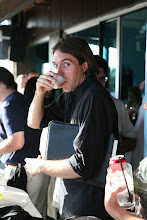Subject• The essay does not meet the criteria for an event essay, but seems more like a personal essay, reflection essay, or some other type of writing.
• The topic is too broad (“my childhood,” “our championship season”).
• The event does not seem important to the writer.
• The essay either trivializes a major event or overstates a minor one (this second case can be effective if handled humorously).
Narrative Structure of the Event
• The event sprawls over too much time or space.
• The event is not clearly framed for the reader; it should begin or end at another point.
• The narrative drags in places, or skips over important episodes too quickly.
• The narrative lacks dramatic tension or suspense.
• The dialogue is undramatic and uninteresting; it does not move the action forward.
Anecdotes and Scenes• They are either too brief or much too extended.
• They do not seem to relate well to the event, or are poorly chosen or badly framed.
• The essay lacks telling details to build a dominant impression.
• The writer has not selected relevant details, or includes too many trivial, irrelevant ones.
• People do not seem believable in their actions or dialogue.
Significance to the Writer• There is no apparent significance, stated or implied.
• The significance is heavy-handed, inflated, oversimplified, or sentimentalized; the writer moralizes about the event.
• The essay is not very thoughtful in exploring the event’s significance; the writer may come off as a hero or a blameless victim.
• The essay does not give the reader a vivid impression of the writer.
Language
• What language problems do you repeat. Use pages 60-61 to help.
Thursday, February 12, 2009
Subscribe to:
Post Comments (Atom)




No comments:
Post a Comment